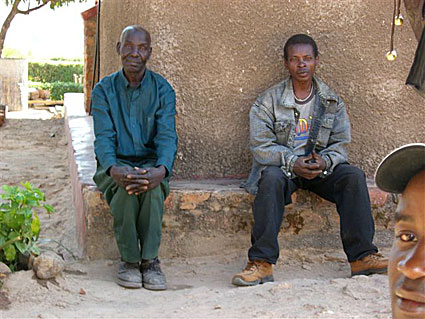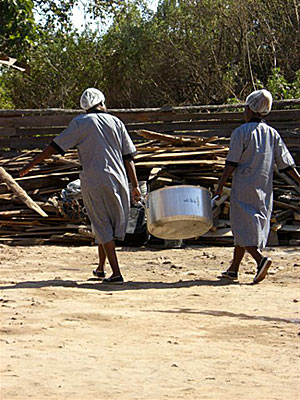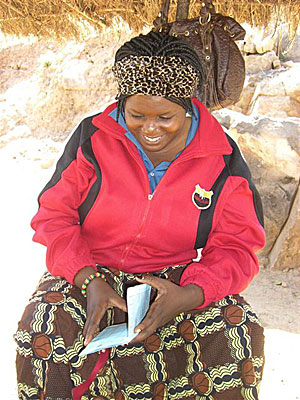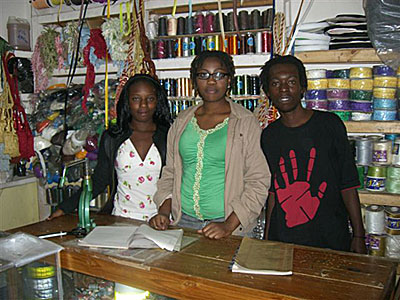Today is the day our friends leave us. Friday brings the big vehicle and once again we load the folks and their luggage, this time for a trip to the airport. Ndola airport is so small it is possible to check in, check bags, and then drive down the road to Strawberry Café for a latte—which we do. We had plenty of time since the flight from Johannesburg was more than an hour late.
Back to the house for a quick lunch while Friday switched out the big van for the smaller truck, then out to Kantolomba to meet with and interview the carpenters. We have hired Pascal, an older, experienced fellow, and Christopher, who it turns out is Josephine’s husband. We like them both. Friday feels they have a good chance of doing the job well. Their most important qualification--they don’t drink.

The new carpenters, Pascal and Christopher.
We did a walk-around of the property, creating an order of priority for the work. It is challenging in the extreme to do this kind of project in a foreign country with two different languages. Things have different names, things are done in different ways, just getting clear on terms can be epic, and there’s still no guarantee we’re talking about the same thing! We were so grateful that when people were talking about needing a crowbar, the tool they wanted was the one we also call a crowbar. In a world of “planks” for rafters, “iron sheets” for galvanized tin, and “bore valve” for “spigot,” finding a crowbar to be a crowbar is a great relief.

We got to see the new pots in action.

Theresa talking through the carpentry plan.

Never a shortage of cute faces!
After the roofing project was laid out, we were sent to town for thread for the new sewing machine. Georgina, Nellie, and Josephine will now set to work stitching some monk bags for us to bring home. We also picked up a couple of hammers for the carpenters. Tools have a way of making their way to new homes so the women are vigilant about keeping track of everything, locking it up at night, and distributing it at the start of a workday.

Our new friends at the sewing shop.
Back home to a dark house. We seem to have hit a pattern here with the power being turned off promptly at 6 p.m. each day, coinciding perfectly with the end of daylight. Not a fun or easy way to live, but one that puts us very much in touch with how the folks we’re here to serve live every day of their lives. Their electricity NEVER comes on; our toilets might not flush perfectly, but they flush; our refrigerator and stove don’t work without electricity; they have neither. (Good to keep things in perspective!)
